This blog includes excerpts from a longer paper entitled “’What if something happens?’: A qualitative study of the hopes and anxieties of the American middle class before and during the COVID-19 pandemic.”
The United States of America is a race-plural nation – the American middle class is no different. If we define the middle class as those in the middle 60 percent of the household income distribution, with annual household incomes between $40,000 and $154,000, then 59 percent of the middle class is white, 12 percent of the group is Black, 18 percent is Hispanic, and 6 percent is Asian.
Given the racial make-up of this group, this current period of civil unrest, and the looming presidential election, it is more important than ever for those of us concerned with the well-being of the American middle class to understand the attitudes of different racial groups within the middle class. In a Brookings study begun in late 2019, in which we conducted focus groups and personal interviews with a broad range of middle-class Americans, we were able to have real discussions about race, racism, identity, and injustice. To promote comfort and honesty, we stratified our focus groups by race and gender, which allowed different middle-class race-gender groups to talk openly about their experiences in their workplaces, with their families, communities, and in their everyday lives. Below, we present what members of the American middle class had to say about racial injustice, both in the months leading up to the first identified case and in the early days of the COVID-19 pandemic.
Navigating Injustice
Summer 2020 witnessed national uprisings against racism and police brutality, with deeply rooted tensions concerning power, identity, injustice, and belonging that erupted into protests, riots, and lethal violence. These tensions were already brewing in our conversations about identity and respect in our focus groups in the fall of 2019. For the Black and Hispanic people in the focus groups, experiences of disrespect and discrimination in the workplace were prevalent. Black women described how they had to restrain their emotions and opinions out of fear of retaliation or conflict, while also working harder to be given a fair chance. As Patricia, a Black woman who works in IT, describes: “I got to work harder. I have to work hard. I have to bust my kneecaps and ankles, just for somebody to give me a chance. I have to not respond the way someone would expect for me to respond so that they can respect me. Nobody respects women, and especially a Black woman.”
Black and Hispanic individuals attested to racism in their everyday lives, whether stereotyping by their co-workers, discrimination in higher education, or racial profiling in the criminal justice system.
Black and Hispanic individuals attested to racism in their everyday lives, whether stereotyping by their co-workers, discrimination in higher education, or racial profiling in the criminal justice system. Justin, a Hispanic man in a Las Vegas, Nevada, focus group, shared his experience, “I’ve never had a positive association or positive experience with a cop pulling me over. I got to a point where being Hispanic and being behind the wheel at night, it was almost a no-go for me.” In Prince George’s County, Maryland, Black men described being “trolled for speeding” when they ventured into suburban areas and getting “pulled over because you ‘fit the description’” when they were wearing dreads, driving a nice car, or simply having a laundry bag in their backseat. One man said soberly, “In most of our movies, the person dies. A lot of these movies conditioned us to not prepare for a long life, not prepare for marriage. We figure we get to twenty-one, man, I’m blessed.”
“I’ve never had a positive association or positive experience with a cop pulling me over.”
In Houston, Texas, Black men referred to the “injustice system,” documenting their fears of their children “getting railroaded for something petty” while wealthy people “get a slap on the wrist, two to three years’ probation for something petty, while they just violated my child and mess them up for life.” One man tied crime to economic inequality and racism, explaining, “Just because I can’t get a job, the bills don’t stop coming. I can’t get a job. My child’s stomach’s not going to stop rumbling.” Another man chimed in, “It’s more profitable to keep us locked up and to keep this system rolling because you’re rented out as free labor, you’re rented out for for-profit prisons, and there is a quota the police and system has to make to keep those facilities rented. My biggest thing is to keep my children out of their facilities.”[1] Men and women in the Black and Hispanic focus groups attempted to acknowledge and fight against injustice, but also tried to protect themselves from exhaustion and despair. As a Black woman in Wichita, Kansas, noted, “I can switch it off real quick if I see stuff, like even with the police officers killing a lot of Black men, and women too, I can tune in and tune out. I don’t want to see that, I don’t want to watch that, because all it does is bring my spirit down. So, I’m an optimist on life in general, and just knowing that the future is going to be as bright as you make it, it’s up to us to make our future bright.”
Brian, a 57-year-old Black man from Detroit, Michigan, moved to Texas when the automobile factories were closing, leaving behind “a post-apocalyptic world.” In Houston, he moved into the technology field, performing computer upgrades and technical assistance on government contracts. Brian has not had steady benefits such as health insurance or retirement contributions as a contract worker, yet has invested substantially in his own career advancement, most recently in a $7,500 online course on data security. Since COVID-19 hit, he has been “trying to get two certifications, maybe three, between now and Labor Day weekend, because right now it’s just very hard to get a job because the work source is gone. The unemployment office, they’re closed. You can’t go online because the website just keeps crashing if you get on there.” He has been getting some help from SNAP. Brian reflects, “I think that if you want the American Dream, if you’re a minority, you have to work so much harder. I mean, you can get it, but you’ve just got to work a lot harder. There have been times when I’ve been down here where I think that race played a part in me getting the job, because when you’re the only Black person and everybody else is white, you kind of figure you’re probably the token guy that they kind of had to hire, to keep the government off of them. I’ve had a couple of jobs like that. I think there’s just a lot more opportunities, if I were lighter-skinned or white.” He continues: “I mean, plus what’s going on in Detroit right now. I mean, they’ve got the highest COVID cases in the country, and like I said. Detroit is 80% Black, so, like I said. That’s one reason why I’m glad I’m not there.”
Nostalgia and Resentment
For some of the white people we spoke with, we heard anger toward perceived “quota-filling” hiring practices or attacks from the “left.” Some white participants resented being put into a racial category at all, while others feared they were on their way to becoming a “minority” in America. Leslie, a white woman from Las Vegas, described her experiences: “The culture has definitely shifted. Because in the [19]80’s, I think being a white working American woman, a lot of people strived for that, and now we are definitely the minority. I feel like we’re the minority and [we’re] discriminated against, especially in the workplace.” Other white people believed that race had become too politicized in recent years, fueling unnecessary conflict between Americans of different racial groups. Jake, a white pastor from Pennsylvania, put it, “There’s this bizarre focus on race. And granted there are racists, there’s always been racists, there’s always going to be racists. But it seemed like the country went from this, we’re all in this together mentality, to we’ve literally been carved out. They’ve carved us out into groups now. I don’t understand why we’re now white people. It just feels like we were people. When I was in New York, we were people. Some of my best friends were the people I worked with who were all different shades of different stuff.”
Promoting a colorblind[2] view of the world, Jake, a white Trump supporter, continued, “We elected our first Black president, which was supposed to be this big deal. I didn’t care if he was Black. I cared that he didn’t have any experience and I thought he shouldn’t have got the job.” While Jake insists that racism is wrong, he does not like how quotas – “the numbers” – seem to have replaced individual merit: “Almost anywhere you go to fill out something now, you’re asked specifically, are you Latino or Hispanic? Are minorities receiving maybe some additional treatment because we have to get our numbers up to match and we want this to look fair and equal?” In his interview, Jake also worried about a growing “disrespect for our authorities, like police officers. In ministry, there are people who don’t live the way they’re supposed to live. Everybody makes bad choices and doesn’t, but you can’t throw everybody out because just one or two make bad choices. Any profession, any type of work you do, is going to have some bad apples.”[3] Overall, Jake seemed perplexed by enduring racial conflict and resentful that we can’t all just be “people.”
Joe, a white man with a high school diploma who works an entry-level factory job, asserts that America has been “going downhill since 1965.” Joe favors protections for workers such as trade barriers, opposes US involvement in foreign wars, and generally supports “left-wing economic ideas,” labeling himself “kind of a Socialist.” But Joe is staunchly against immigration, insisting, “End it. All of it. Until every single American has a job and is taken care of, we have no business importing competitive labor.” He is also right-wing on cultural issues – “My issues with the Democrats are cultural progressive issues. I’m all for universal health care, universal basic income. But then they push all the progressive cultural issues. I joke around and say, give me the universal health care but hold the gay marriage.” While Joe voted for Trump in 2016, now he thinks Trump “has to go” because he has supported Wall Street over American workers.
Joe tentatively tells us about his involvement in white nationalist politics. He has long been involved in Civil War reenactments and has traced his American roots back to the 1660s in New England. He struggles to define what it means to be American today: “if anybody can be an American, then what’s it really mean?” When I ask if it used to mean something, he replies, “Well, when you say he was an American, you knew what they were talking about. That you’re someone of European ancestry. Originally it was white English Protestants and they had different waves of immigration after that. But until the 1960’s, it was pretty straightforward what an American was. Now that’s becoming much more diversified.” Joe has been heavily involved in the Confederate flag and monument controversies and was part of the Unite the Right rally in Charlottesville, Virginia, in 2017. He states, “But what irks me is the monuments, particularly those put up by widows and orphans to their fallen kin. I think that’s low. It’s almost a personal attack because history is the foundation of my identity is the way I look at it. It’s an attack on white American history more than anything else.” Joe worries about his children growing up as a “minority,” viewing diverse societies as unsustainable and prone to “culture ruptures” and violence. He feels betrayed by Donald Trump’s treatment of the white nationalists in Charlottesville, telling his supporters to “go out there and fight those people, but then when people do it, he leaves them out to dry, which I think is kind of a cheap move.” He says he is willing to give Joe Biden a chance in November.
Evidence of racial inequality abounds.
Evidence of racial inequality abounds. Qualitative data from our American Middle Class Hopes and Anxieties Study is yet another contribution to that body of evidence. Black, Hispanic, and white middle class Americans have had vastly different experiences in America – to say the least – and thus hold different views on current inequalities. Armed with their stories, we are better prepared to think more carefully about how to address injustice and inequality, challenge misinformation, and bridge the nation’s longstanding divides.
About the Study
The Future of the Middle Class Initiative has spent the last several years studying the American middle class. We have explored survey data, reviewed the literature, and consulted with experts. But we also wanted to base our conclusions on talking to members of the middle class, listening to their stories, and in the process, deepening our understanding of their lives and their well-being.
In fall of 2019, we launched the American Middle Class Hopes and Anxieties Study, a mixed-methods study that brings together in-depth interviews, survey data, focus groups, and quantitative analysis to better understand how the middle class is faring across five core domains: time, money, health, respect, and relationships. For the first phase of our study, we conducted twelve focus groups in five locations across the United States, with a total of 127 white, Black, and Hispanic or Latino middle–class Americans.
In April of 2020, we began phase II of the study, conducting one-on-one in-depth interviews with a subset of the focus group participants. As a result of these interviews, we were able to hone in on the new challenges that have arisen as a result of COVID-19, including balancing childcare and work, sharing household tasks, coping with mental and physical health concerns, and dealing with economic uncertainty.
This work would not have been possible without the collaboration of Econometrica, Inc. researchers and the generosity of the 127 middle class Americans who shared their stories.
Footnotes
[1] See Rios, Victor. Punished: Policing the Lives of Black and Latino Boys. New York, NY: NYU Press, 2011.
[2] Bonilla-Silva, Eduardo. Racism without Racists. Lanham, MD: Roman & Littlefield Publishers, 2009.
[3] Rashawn, Ray. “Bad apples come from rotten trees in policing.” Brookings How We Rise (blog), May 30, 2020. https://www.brookings.edu/blog/how-we-rise/2020/05/30/bad-apples-come-from-rotten-trees-in-policing/
Jennifer M. Silva did not receive financial support from any firm or person for this article or from any firm or person with a financial or political interest in this article. The author is not currently an officer, director, or board member of any organization with a financial or political interest in this article.
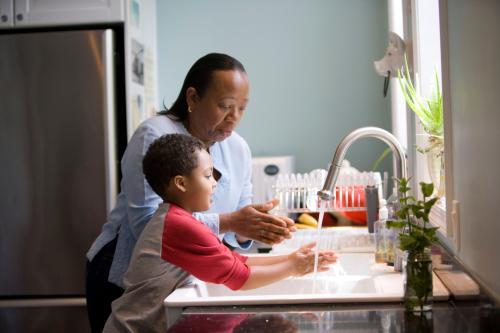
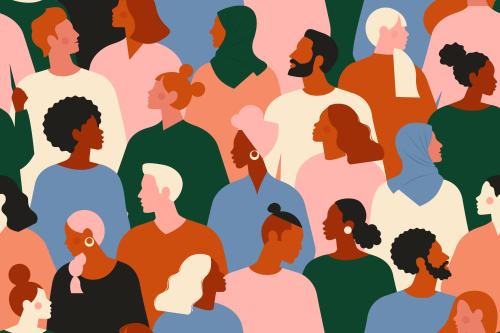
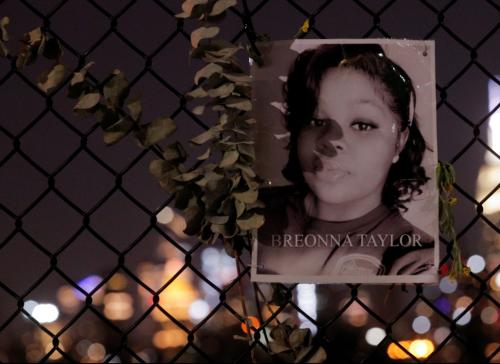

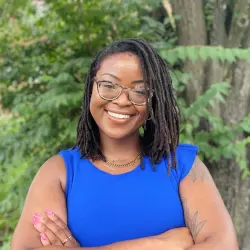


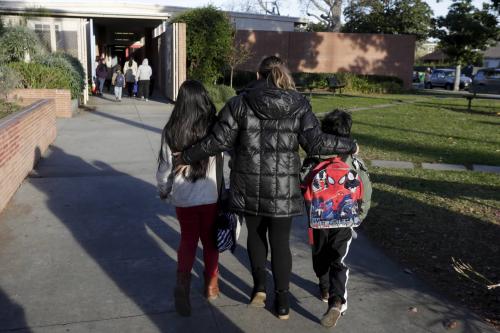
Commentary
Navigating race and injustice in America’s middle class
October 29, 2020